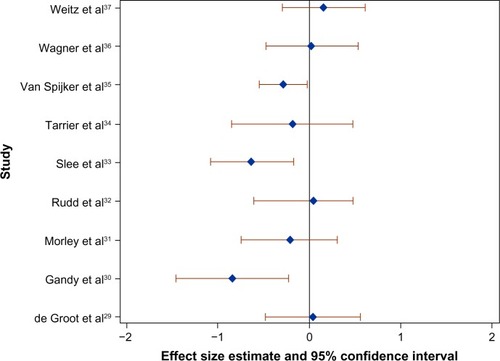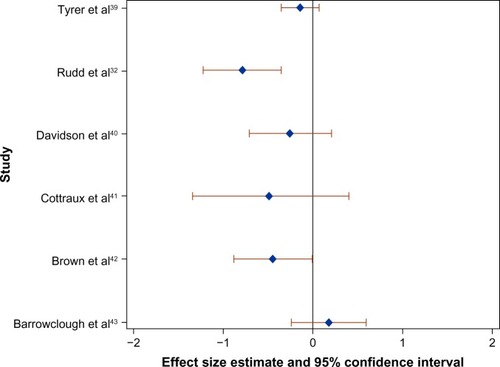Figures & data
Table 1 Overview of randomized controlled trials of CBT for adults (aged 18 years and older) that included suicide-related cognitions as an outcome measure
Table 2 Overview of randomized controlled trials of CBT for adults (aged 18 years and older) that included suicide-related behaviors as an outcome measure
Figure 1 Forest plot of the effect size (Cohen’s d) of CBT on suicidal cognitions compared to the control group at the first assessment posttreatment in nine randomized controlled trials.
Abbreviation: CBT, cognitive behavioral therapy.

Figure 2 Forest plot of the effect size (Cohen’s d) of CBT on suicidal behaviors compared to the control group at the first assessment posttreatment in six randomized controlled trials.
Abbreviation: CBT, cognitive behavioral therapy.

